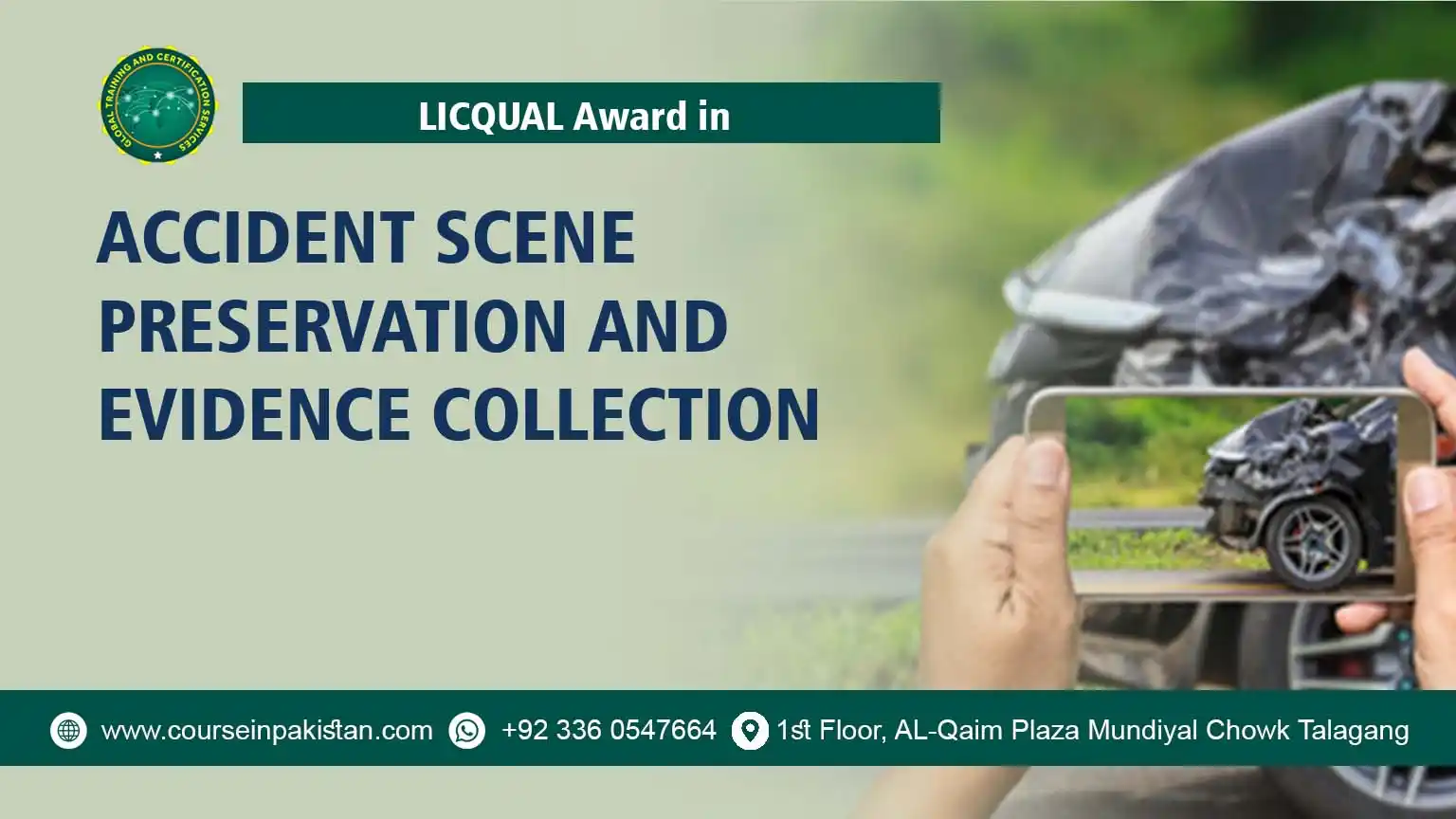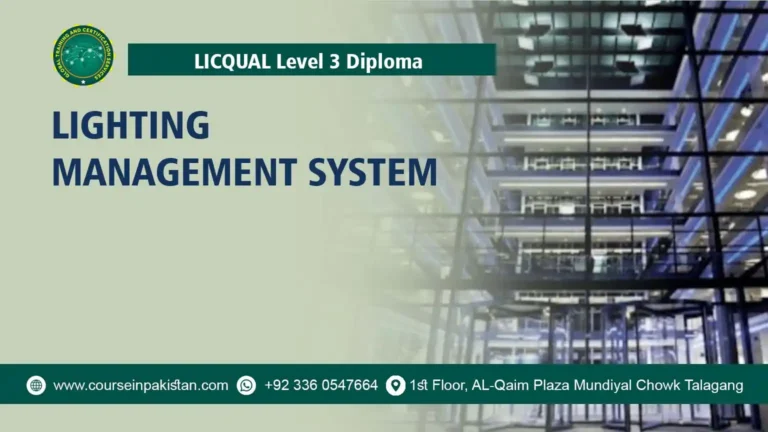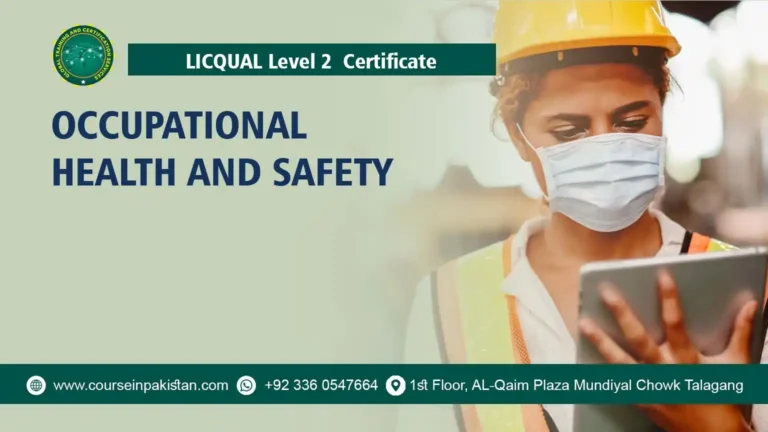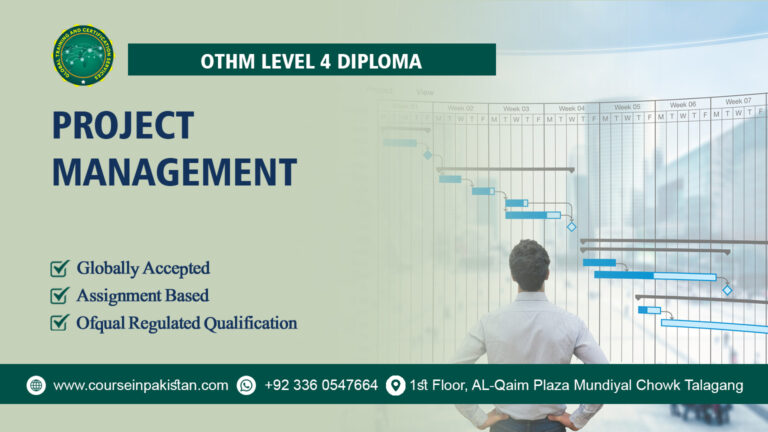
Award in Accident Scene Preservation and Evidence Collection
Accidents are often chaotic, but their investigation begins at the scene. The Award in Accident Scene Preservation and Evidence Collection is designed for professionals who play a critical role in ensuring that accident scenes are properly managed and evidence is collected in a methodical and meticulous manner. This course focuses on the foundational principles and practical techniques essential for preserving scene integrity and gathering crucial evidence.
Course Introduction
The Award in Accident Scene Preservation and Evidence Collection provides participants with essential skills and knowledge to effectively manage accident scenes from the moment of discovery through evidence collection. This course emphasizes the importance of maintaining scene integrity to ensure accurate investigation outcomes.
Course Overview
Participants will learn systematic approaches and best practices for accident scene management and evidence collection. The course covers practical techniques, legal considerations, and technological tools used to document, preserve, and analyze evidence effectively. Through interactive learning modules and real-world simulations, participants gain hands-on experience in handling various accident scenarios.
Course Benefits
- Enhanced Investigation Skills: Develop proficiency in managing accident scenes to preserve evidence integrity.
- Improved Accuracy: Learn techniques for collecting and documenting evidence that withstands legal scrutiny.
- Compliance and Legal Confidence: Understand legal requirements and best practices to ensure compliance with investigative standards and regulations.
Course Study Units
The Award in Accident Scene Preservation and Evidence Collection typically includes study units such as:
- Introduction to Accident Scene Preservation and Evidence Collection
- Types and Significance of Evidence in Accident Investigations
- The Role of Chain of Custody in Evidence Integrity
- Accident Scene Assessment and Hazard Identification
- Techniques for Physical Evidence Collection and Preservation
- Documentation and Sketching of Accident Scenes
- Photography and Videography in Evidence Collection
- Digital Evidence and Data Preservation
- Ethical and Legal Considerations in Evidence Collection
- Communication and Reporting in Accident Investigations
Learning Outcomes
Introduction to Accident Scene Preservation and Evidence Collection
Learning Outcomes:
- Understand the fundamental principles of accident scene preservation.
- Recognize the importance of evidence collection in accurate accident investigations.
- Appreciate the role of scene management in maintaining evidence integrity.
Types and Significance of Evidence in Accident Investigations
Learning Outcomes:
- Identify different types of evidence relevant to accident investigations (physical, testimonial, documentary).
- Understand the significance of each type of evidence in reconstructing accident scenarios.
- Evaluate the relevance and reliability of evidence for investigative purposes.
The Role of Chain of Custody in Evidence Integrity
Learning Outcomes:
- Explain the concept of chain of custody and its importance in preserving evidence integrity.
- Demonstrate procedures for documenting and maintaining chain of custody throughout the evidence lifecycle.
- Implement protocols to ensure admissibility of evidence in legal proceedings.
Accident Scene Assessment and Hazard Identification
Learning Outcomes:
- Conduct systematic assessments of accident scenes to identify hazards and safety risks.
- Apply hazard identification techniques to mitigate risks during evidence collection.
- Prioritize safety measures to protect personnel and preserve scene integrity.
Techniques for Physical Evidence Collection and Preservation
Learning Outcomes:
- Utilize appropriate techniques for collecting and preserving physical evidence at accident scenes.
- Ensure proper handling, packaging, and labeling of physical evidence to maintain integrity.
- Demonstrate proficiency in documenting chain of custody for physical evidence.
Documentation and Sketching of Accident Scenes
Learning Outcomes:
- Develop skills in accurate documentation of accident scenes through detailed note-taking.
- Create sketches that depict the layout, dimensions, and key features of accident scenes.
- Use sketching techniques to aid in reconstructing accident scenarios during investigation.
Photography and Videography in Evidence Collection
Learning Outcomes:
- Apply principles of photography and videography to capture comprehensive views of accident scenes.
- Use cameras and equipment effectively to document physical evidence and environmental conditions.
- Ensure quality and clarity in photographic and video documentation for investigative purposes.
Digital Evidence and Data Preservation
Learning Outcomes:
- Recognize the importance of digital evidence in modern accident investigations.
- Employ techniques for preserving digital evidence, including computer data and electronic records.
- Adhere to protocols for handling and securing digital evidence to maintain its integrity.
Ethical and Legal Considerations in Evidence Collection
Learning Outcomes:
- Understand ethical principles governing evidence collection, including privacy and confidentiality.
- Comply with legal standards and regulations related to evidence admissibility and chain of custody.
- Uphold professional integrity in handling sensitive information and conducting investigations ethically.
Communication and Reporting in Accident Investigations
Learning Outcomes:
- Develop effective communication skills for interacting with stakeholders during accident investigations.
- Write clear and concise reports that document investigation findings, analysis, and conclusions.
- Communicate investigative outcomes accurately to support decision-making and organizational learning.
These learning outcomes equip participants with essential knowledge and practical skills necessary for effective accident scene preservation and evidence collection. Mastery of these study units ensures professionals are capable of conducting thorough and reliable accident investigations, contributing to improved workplace safety and organizational resilience.
Who is This Course For?
The Award in Accident Scene Preservation and Evidence Collection is suitable for:
- Law enforcement personnel involved in accident investigation.
- Health and safety professionals responsible for incident response and evidence handling.
- Forensic specialists and consultants engaged in evidence collection and preservation.
Future Progression for This Course
Successful completion of the Award in Accident Scene Preservation and Evidence Collection lays the foundation for further specialization in forensic investigation, accident reconstruction, or advanced accident investigation techniques. Participants may pursue certifications in forensic science, crime scene investigation, or advance to leadership roles in accident investigation teams. Additionally, the skills acquired in this course are transferable across industries where accurate incident documentation and evidence management are critical.
mastering the techniques of accident scene preservation and evidence collection is indispensable for professionals committed to accurate and thorough accident investigations. This course equips participants with essential skills to manage accident scenes effectively, ensuring the integrity and reliability of evidence crucial for determining causes and preventing future incidents.






